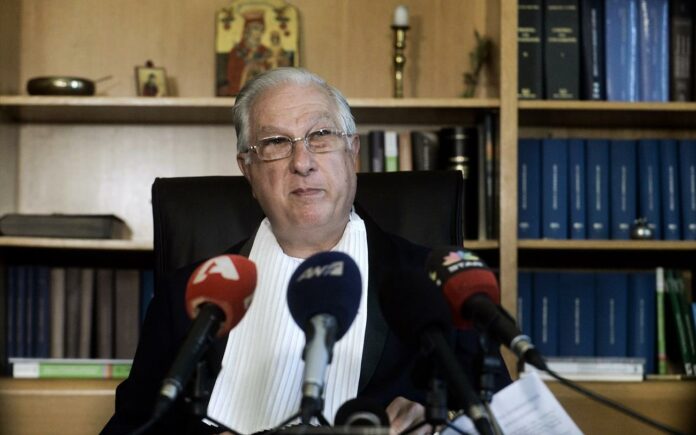A simmering feud between the leftist-rightist coalition government and a high-profile segment of the country’s independent judiciary continued unabated on Monday, with the president of the Council of State (CoS) saying the independent justice system must be fully respected by the executive and legislative branches.
The comment by CoS president Nikos Sakellariou comes after unprecedented criticism over the weekend by the leadership of the union representing judges and prosecutors in Greece. The statement, approved by a majority of the union’s board members, referred to an attempt at a “…complete subjugation and manipulation of justice, so that it (justice system) does not function as an independent branch, but as a government appendage.”
The CoS is Greece’s highest administrative court, and as a result, often rules on the constitutionality of implemented legislation after legal challenges are filed in its docket.
“The (independent) justice system absolutely respects the institutional role of the legislative and executive functions, however, it demands the corresponding respect of its special institutional role,” Sakellariou said.
A day earlier, the announcement by the justice sector union association warned that Greece risks following recent examples of Turkey and Poland in terms of interventions and encroachment by the executive branch into the realm of the independent judiciary. The statement directly cited an almost daily succession of statements by Tsipras government ministers and party MPs attacking various high court rulings and individual justices.
Sakellariou also echoed that position, charging what he called an “unprecedented attack against the justice system and its functionaries”.
High court decisions, by the CoS and the Supreme Court, have overturned and quashed a handful of very prominent government initiatives, such as an attempt to auction-off nationwide broadcast licenses. The high court also validated a five-year statute of limitation for tax bureau audits of individuals and companies, among others, essentially ending probes and investigations of various “lists” of deposits held by Greek citizens in overseas banks, such as the oft-repeated “Lagarde List”.
Even in terms of criminal cases, the relevant justice minister, speaking from Parliament’s podium this month, criticized an appellate level tribunal’s split decision to reject the conditional release a woman convicted on terrorism-related charges in the first instance pending her court appeal.
A veiled but ultimately attempt to increase the age of retirement for supreme court justices, including the president of the body, also generated back-and-forth accusations. Recently retired supreme court president Vassiliki Thanou, who spearheaded the imitative to raise the mandatory retirement age beyond 67, was appointed as the non-salaried chief legal counsel in the prime minister’s office days after leaving her post. That development also generated shrill criticism by the opposition and judicial officials over a conflict of interest and insinuations of previous collusion by the government and the top justice.














